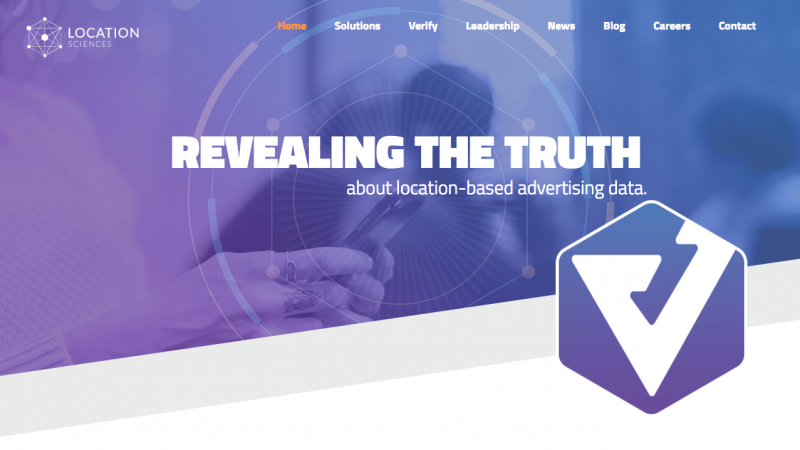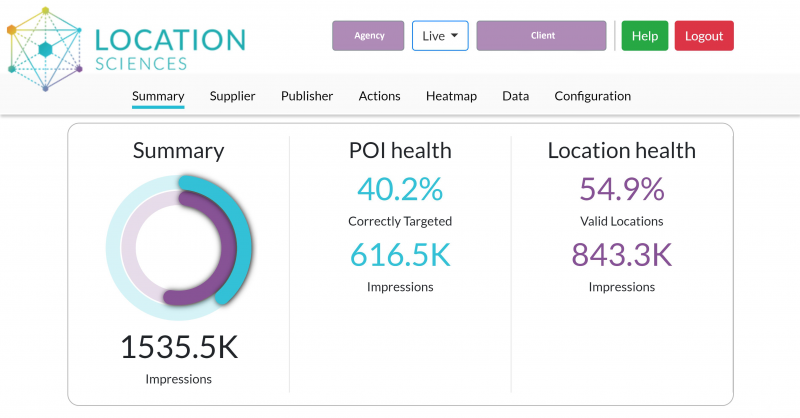Location Sciences launches in Australia to combat inaccuracy of 40% of location data vendors
Data intelligence company Location Sciences has launched in Australia, offering to verify campaign location data for agencies and their clients. According to a study it conducted, 40% of location data vendors are inaccurate, and 36% of GPS signals fraudulent, in some way.
The company, whose local operations will be headed up by Rupert Pay, looks at whether ads land where they are intended to and whether fraudulent data impacts campaign results.

Pay said that, as the company’s local representative, his job is to get vendors on board and explain to agencies what Location Sciences does, and the key questions it answers about clients’ campaigns.
He explained that those questions include: “Are we putting this in front of the right audience? Did they see the ad? How much of the ad did they see? Is that location data accurate? Where did it come from? Did it hit the targeting parameters of the campaign? What were you doing to ensure there was no fraudulent signals in that?”

Pay is the company’s local representative
Location Sciences scores the location data in a campaign on accuracy (did the ad get in front of the people it was meant to?) and quality (were the results fraudulent in any way?).
“What we found was, for varying reasons, 29% of impressions were living outside of what the targeting parameter of those campaigns,” Pay said.
“The flip side of that is, that’s great, 71% of the impressions landed there. But is that good enough? If I was a client, if I was an agency, I’d say no, because I wanted to target this area … We don’t think the client should pay for that. We don’t think an agency should pay for that.
“Responsibility is ultimately on whoever creates the signal. But then there is a responsibility on the vendor who chooses to use location signals to sell services to an agency or a client. There’s a responsibility on them to ensure that the quality of that data being passed on to them is good.”

An example campaign summary on the platform
In terms of quality, the study showed that 36% of GPS signals were deemed fraudulent in some way, and highlighted the disparity between the best and worst vendors.
“In terms of the vendors we looked at, 40% of them were excellent. 20% of them were good. But the disparity is quite broad,” Pay added.
“It’s not like they were all terrible or they were all great. [But] you’ve got 40 percent of vendors, you would argue are not accurate.”

An example vendor assessment on the platform
The introduction of Locations Sciences in the market is something that Pay thinks is an important opportunity not just for agencies and their clients, but for vendors too.
“Look, it’s not their [vendors’ fault that they’ve had to mark their own homework because there’s been nobody out there that’s been able to do this,” he said.
“We’ve spoken to a number of vendors, agencies. We’re not speaking directly to clients, we believe that that’s the agency’s responsibility. We’ve tested with one vendor here that got excellent results. One vendor didn’t want to talk to me at all, which we thought was interesting. And disappointing.
“I think it’s actually a great opportunity for vendors to take the moral high ground and get on board. Why wouldn’t you?“


Most of that is already in MOVE.
Sure a service to verify posting makes sense, but the actual location, illumination, visibility, obstruction etc. are accounted for in MOVE’s LTS data.
Hi Hmmm,
Unless I’m mistaken, MOVE is for the measurement of OOH visibility and exposure, isn’t it? This is not the same at all. We analyse IP addresses and/or GPS signals, used in either real-time location-based marketing, or historical audience buys, where location is used by vendors as proxy to help define who they think someone is. Please feel free to email me directly for further info.
Thanks,
Rupert
(super) curious as to what the (data) source of ‘truth’ is for Location Sciences?
Hi there back!
Whilst I completely understand why you’d ask this question, it’s not really the right way to look at “who’s telling the truth?”, because there is no single source of truth. I also won’t go into the reasons for poor signal quality or inaccuracy too much here. You can read about that in much more detail, by downloading our report: https://www.locationsciences.ai/blog/location-insights-uncovered/
The majority of targeting is based on IP address or GPS, with the latter being much more accurate (think an Uber knowing exactly where you’re standing). Vendors and businesses like ours all have the potential to access this data – it’s what they choose to do with it that counts. Data scientists and engineers also move around like any industry, so much of the ‘knowledge’ is widely known.
Our business is based on analysing every impression, and identifying the suspect ones. We use statistical modelling techniques to detect fraud and inaccuracies in location data signals. For example, if over the course of a campaign, a heat-map generates a perfect rectangle over a given geographical area, randomised (fraudulent) lat/longs are almost certainly being deployed by apps that the campaign is using. Likewise, if we see hundreds, even thousands of impressions with the same lat/long, it’s highly unlikely that was someone being served thousands of ads without moving a muscle!
Unfortunately, less scrupulous vendors may not be so quick to weed out suspect impressions, as it reduces scale and therefore income. There may also be human campaign management error, or a deliberate ‘loosening’ of targeting to ensure impression delivery. There are other reasons too which the report elaborates on.
For us, this IS our business. For vendors, it should be just good practice. Unfortunately and across the board, it is with varying degrees. I’m more than happy to take up this conversation outside of this thread, by emailing me at rupert.pay@locationsciences.com
Cheers,
Rupert
could your product be used to check google adwords
No, sorry.
it’s about time, for years I have not got value for my ad spend and despite my complaints I have never got anywhere.
Hi Good,
I’m sorry to hear this, as there are actually a number of great vendors out there. If you care to email me at rupert.pay@locationsciences.com, I’d be happy to demo the platform to you (and/or your agency if you have one?).
Rupert
Hi Rupert
Please can you explain how the new Monte-Carlo distribution model will work.
How’s it going so far with the expansion into Australia is there much interest from vendors for Verify and are any in the trial phase.